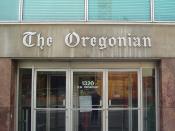There were many reasons behind the series of uprisings that became the French revolution. The new bourgeois class was demanding social mobility. No matter how much money these middle class citizens had earned, they were still considered members of the third estate, denying them much power and status. As these literate men of wealth tried to emancipate "themselves from the position of clients of the nobility," they "wrote for the great public," and created a stir which led the general public to reconsider their own standing in society. As the plebeians were largely uneducated, they were not concerned with their social status as they did not have the funds to be considered members of the bourgeois anyways. This poverty was the reason that the peasants were up in arms about economic inequalities. Because they had so little to begin with and it was much harder for a simple farmer to make copious amounts of money, they were outraged by the high taxes which prevented them from leading a comfortably prosperous life.
As for the French legal system, this was a matter of great concern to all members of the third estate. There was much anger towards the "'tax farm'... [the] business company which bought from the government the privilege of levying taxes." Members of this organization would arrest citizens without "observing any of the restrictions imposed by law." Clearly, the driving force behind the French revolution was the third estate's lust for social, economic, and political mobility, freedom and equality.
The bourgeois were a new class of people that had capitalized on any chance to make money that had been presented to them. They were in some cases just as wealthy, if not wealthier, than their lords but they did not have the name. This familial lineage was the...


